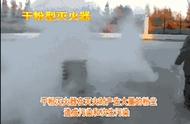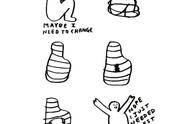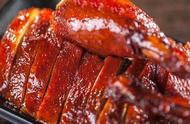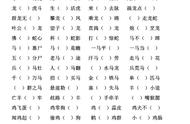01 冠词
【命题解读】
常见的考点如下:
① 冠词的泛指、特指
② 在形容词和副词比较等级前的用法
③ 固定搭配
④ a 和 an 的区别(2017 新增)
【名师指导】
复习冠词须把握好以下三个原则:
①单数可数名词用不定冠词 a/an 表示泛指;
②复数可数名词及不可数名词表示泛指时,其前不加冠词;
③无论可数名词还是不可数名词,表示特指时,其前都要加定冠词 the。
不定冠词
不定冠词有两个,a 和 an 。a 用在辅音开头(不是辅音字母,是音标)的单词前面;an 用于以元音开头(不是元音字母,是音标)的单词前。如:a book, an apple;a university ,an hour.
1. 用于泛指某一类人或物中的任何一个。
The village where I was born has grown into a town.
2. 用于第一次提到或出现的名词前,表泛指,不特别指明具体情况。
There is a cup on the desk, but the cup isn’t mine.
3. 用于序数词前,表示“又一,再一”。
I have three books, and I want to buy a fourth one.
4. 用于形容词的比较级前,表示“ 一个更…… 的”。
If we sit near the front of the bus, we’ll have a better view.
5. 用于姓名、星期名称前,表示“某个名叫…… 的人,一个跟某人相仿的人,某人的作品发
明”或“某个星期几”。
Experts think that the recently discovered painting may be a Picasso.
专家们认为这幅新发现的油画或许是毕加索的画作。
6. 用于表示价格、速度、比率等的名词前表示“每一”。
He works eight hours a day.
7. 用于物质名词或抽象名词具体化时。
这类名词仅表示概念时,是不可数名词,前面不加冠词。但如果表示具体的人或事,特别是前 面有形容词修饰时,就变成了可数名词,前面要加不定冠词。具有此用法的名词有:success, failure,surprise, pleasure, beauty, pity, danger, comfort, honour 等。
surprise 惊奇 → a surprise 一件意想不到/令人惊奇的事
failure 失败 → a failure 一个失败的人;一件失败的事
success 成功 → a success 一个成功的人;一件成功的事
rain 雨 → a heavy rain 一场大雨
注意:常考的不可数名词有:baggage, luggage, furniture, health, weather, fun, space(太空), advice, word(消息), progress, information, news, equipment, wealth 等。这些不可数名词一般不与不定冠词连用。
8 .用于短语搭配中
(1)“have/take+a(n)+与动词同形的名词” ,表示动作的一次。
have/take a rest 休息一会儿;have/take a look 看一下;have/take a bath 洗个澡。
(2)“go out for a(n)+名词” ,表示从事某项活动。
go out for an outing 去郊游;go out for a picnic 去野餐。
(3)习惯搭配中。
come to an end 结束;drop sb. a line 给某人写信;at a disadvantage 处于不利地位;in a way 从一 方面说;in a word 总之;in a sense 就某种意义来说;on a diet 吃特定食物;with a view to 为了,鉴
于。
定冠词
1 .特指某(些)人或某(些)事物,这是定冠词的基本用法
①The books on the desk were published last month.
桌子上的那些书是上个月出版的。
②The factory I mentioned has installed a new assembly line.
我提到的那家工厂已经安装了一条新的装配线。
③We were all lost in the beauty of nature.
我们都被大自然的美所陶醉。
2 .再次提到前面已出现的日 人或事物,表示特指
①I met a friend in the street;he said he had been seriously ill.
我在街上遇见了一位朋友,他说他生过一场大病。
②He told us a story ,but I was not interested in the story.
他给我们讲了一个故事,但我对这个故事不感兴趣。
3 .指谈话双方彼此都知道的人或事物
We went to the station to see the manager off.
我们到车站为经理送行。
4 .用在某些可数名词单数前,用来指事物的整体(总称)与其他事物的区别
①The telephone was invented by Bell.
电话是贝尔发明的。
②The elephant is much stronger than the horse.
象比马强壮得多。
5 .用在表示某国人的名词前
the Chinese 中国人;the French 法国人;the English 英国人;the Spanish 西班牙人;
the Dutch 荷兰人;the Irish 爱尔兰人;the Swiss 瑞士人;the Japanese 日本人。
6 .某些形容词或分词前加定冠词 the 表示一类人(表示复数)
the homeless 无家可归的人;the rich 富人;the poor 穷人;the blind 盲人;the old 老年人
the young年轻人;the strong 强者;the weak 弱者;the sick 病人;the wounded 伤者。
7 .在序数词前要加定冠词 the(有时在序数词前加不定冠词,表示“再次”“又一”)
She lives on the twelfth floor.她住在十二楼。
8 .在形容词最高级及形容词 only(唯一的) ,very(正是那个) ,same(同样的)等前加定冠词 the
①This is the most interesting film I have ever seen.
这是我看过的最有趣的电影。
②He must be the only student who has ever been to the city in our class.
他一定是我们班唯一去过那座城市的同学。
③That’s the very thing I’ve been looking for.
那正是我要找的东西。
9 .在表示一些独一无二的东西的名词前要用定冠词 the
the earth 地球;the moon 月亮;the sun 太阳;the sky 天空;the universe 宇宙;the world 世界;the air 空中;the ground 地面。
10 .用于时间、重量等单位名词之前,表示每一个单位
①The boat is hired by the hour.
小船按小时出租。
②There are two or three apples to the pound.
每磅有两三个苹果。
11.在表示方位、方向的名词前用定冠词 the
in the east/south/west/north 在东/南/西/北方;on the right/left 在右/左边。
12 .在表江河、海洋、山脉、群岛、沙漠、海峡、海湾等专有名词前,要用定冠词 thethe Yellow River 黄河;the Rhine 莱茵河;the Pacific 太平洋;the Red Sea 红海;the Himalayas 喜马拉雅山脉;the British Isles 不列颠群岛;the Taiwan Strait 台湾海峡;the Sahara Desert 撒哈拉沙漠。
13 .用在逢“十” 的数词前,指世纪的某个年代
in the 1980s/1980’s 在 20 世纪 80 年代。
14 .乐器名称前用定冠词 the
She plays the piano best in her class.
她钢琴在班上弹得最好。
15 .在姓氏的复数形式前加定冠词 the表示“ …… 一家”
the Browns 布朗一家;the Lis 姓李的一家。
16 .在“动词+sb.+介词+the+表身体部位的名词” 的固定结构中hit sb. in the face 打某人的脸;take sb. by the arm/hand 抓住某人的胳膊/手;pat sb. on the shoulder拍某人的肩;hit sb. on the head 打某人的头。
本结构中不能用物主代词替代定冠词,常用于该结构的动词有 pat ,strike ,beat ,hit ,catch,put ,take 等。
17 .在短语搭配中in the end 最后;come to the point 谈到正题;on the contrary 相反;in the morning 在早晨;in the distance 在远处;in the water 在水中;on the subject of 关于 … … 的主题;on the air 在广播。
含有冠词的词组分析
英语中有不少词组,从形式看好像只有冠词之差,而实际上却是意义完全不同的词组。
1. in front of 在……(外)的前面;in the front of 在……(内)的前面
There is a garden in front of the classroom. 教室前面有一个花园。(外)
There is a blackboard in the front of the classroom. 教室前面有一块黑板。(内)
2. in charge of 掌管、负责;in the charge of 在…… 负责之下
An experienced worker is in charge of the project. 一位有经验的个人负责这个项目。
The project is in the charge of an experienced worker. 这个项目由一位经验丰富的工人负责。
3. at table 在进餐、吃饭时;at the table 在桌旁
He seldom talks at table. 吃饭时他很少说话。
They sat at the table, talking and laughing. 他们坐在桌旁,边说边笑。
4. by day 白天、 日间;by the day 按日计
He works in an office by day. 他白天在办公室工作。
Cleaning women in big cities get paid by the day. 大城市的清洁女工按日获得报酬。
5. take place 发生、举行;take the place (of) 代替、接替
When did this conversation take place? 这次谈话什么时候进行的?
Electric trains have now taken the place of steam trains in our country.
在我们国家, 电力火车已经取代了蒸汽火车。
6. in words 用语言;in a word 总之
Please express your thoughts in words. 请用言语表达你的想法。
In a word, I don’t trust you. 总之,我不相信你。
7. at times 有时、不时;at a time 一次
I do feel a little nervous at times. 有时我确实感到有些紧张。
Pass me the bricks two at a time. 每次递给我两块砖。
8. little 少、不多的;a little 一些、一点儿
Hurry up, there is little time left. 快点,时间不多了。
Don’t hurry, you still have a little time. 不用急,你还有时间。
9. few 很少、几乎没有的;a few 有些、几个
He is a man of few words. 他是一个少言寡语的人。
Only a few of the children can read. 只有几个孩子会阅读。
10. a most interesting 非常有趣的;the most interesting 最有趣的(形容词的最高级)
This is a most interesting story. 这是一个非常有趣的故事。
This is the most interesting story of the three. 这是三个故事中最有趣的一个。
11. a doctor and nurse 一位医生兼护士;a doctor and a nurse 一位医生和一位护士
A doctor and nurse is standing there. 一位兼护士的医生正站在那儿。
A doctor and a nurse are standing there. 一位医生和一位护士正站在那儿。
12. a number of 许多、好些;the number of ……的数目(后面的谓语动词用单数)
A number of students are in the classroom. 许多学生在教室里。
The number of students in the classroom is forty. 教室里有 40 个学生。
零冠词
1. 不含普通名词的专有名词或表示泛指的抽象名词、物质名词、复数名词或不可数名词前通常不加冠词。
Rock climbing is of great fun. You will get close to nature and take adventures at the same time.
2. 表示季节、月份、星期、节日、学科、语言、球类、棋类以及三餐等的名词前,常用零冠词。
He had nothing for breakfast this morning.
Spring comes after winter.
表示独一无二的职位、职务、头衔的名词在句中作表语、补足语、同位语时,其前通常不加
冠词。
We made him monitor of our class.
4. 在“单数可数名词+as/though”引导的让步状语从句中,单数可数名词前不加冠词。
Good choice as/though it may be, he has decided to give it up.
5. turn 意为“变为,成为”时,后面作表语的单数可数名词前不用冠词。但是 become 意为“变
为,成为”时,后面作表语的单数名词前加不定冠词。
His dream is to turn lawyer while his sister’s is to become a dancer.
6. 名词前已有 this, that, my, your, some, each, no, any 等指示代词、形容词性物主代词、不定
代词或名词所有格时,其前不加冠词。
I want that book about cars.
,














